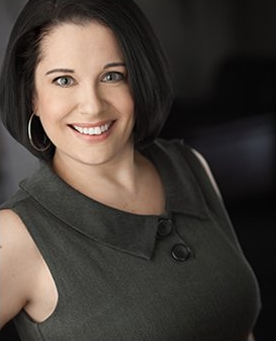Latest Mortgage Stats | 2018
There have been a number of reports released over the past few weeks that have provided some interesting insight into the state of the housing and mortgage markets.
New reports have touched on everything from 2018 renewal rates, foreign buyer statistics and credit quality to the latest financial crunch facing condo investors.
Here are some of the highlights:
Nearly 50% of Existing Mortgages to Renew in 2018
An estimated 47% of existing mortgages are expected to be coming up for renewal this year, according to a recent CIBC Capital Markets report. That’s up significantly from the 25% to 35% that typically come up for renewal each year.
“Over the past two to three years, as home prices have risen unchecked, you’ve had people trying to get into the housing market unable to afford longer-term mortgages and taken out short-term mortgages,” Ian Pollick, CIBC’s executive director and head of North American Rates Strategy, explained in an interview with Canadian Press. “And in 2018, everything is falling on top of one another.”
With higher interest rates today and stricter mortgage qualification rules in place, many existing homeowners could be in for a rate shock at renewal time.
The stress test on uninsured mortgages introduced as part of the new B-20 guidelinesapplies not only to new buyers, but also existing buyers who decide to leave their current lender, perhaps in search of a cheaper rate elsewhere. For the estimated 1-in-6 renewers who won’t able to qualify at the Bank of Canada’s benchmark 5-year posted rate, they will have no choice but to remain with their current lender and likely settle for a less competitive rate.
TD, RBC Hike Fixed Rates
Earlier this week TD Bank raised its 5-year posted rate by 45 bps to 5.59%, the highest it’s been since 2011.
It also raised posted rates for its 2-year, 3-year, 6-year and 7-year terms.
And just today, RBC confirmedto BNN that it will also be raising its fixed rates, effective April 30. The bank said it will hike its 5-year and 10-year rates by 20 basis points, its 1-year and 4-year fixed rates by 15 basis points, and that it will lower its variable closed mortgage rate 15 basis points.
One more of the Big 6 banks is expected to make a move in the coming week.
Despite the increases to the posted rates, most bank customers with sound credit are offered rates that are more competitive. The average 5-year fixed rate available from the Big 5 banks in March (to well-qualified borrowers) was 3.39%, according to RateSpy.com.
Foreign-Buyer Home Sales Drop in Toronto
The number of foreign-buyer home purchases in Toronto has fallen to 2.5%, according to Ontario’s Finance Ministry.
That’s down from a peak of 7.5% in May 2017, just after the introduction of the province’s 15% tax on homes sold to international buyers. Across the Greater Golden Horseshoe, which encompasses a larger geographic area around Toronto, foreign buyer sales have fallen to 1.6%, down from 4.7% the month after the new tax was introduced. However, even in areas where the tax does not apply — outside of the Greater Golden Horseshoe — sales to international buyers was also down, from 2.6% of all transactions last spring to 1.7%.
In a statement, Finance Minister Charles Sousa declared the foreign buyers tax a success: “Our data continues to indicate that our Fair Housing Plan measures have helped to calm the housing market.”
The average price of a house in the Greater Toronto Area has fallen about 14%, from $920,000 last spring to $785,000 in March 2018.
Toronto Condo Investors Subsidizing Tenants
Investing in condos is big business in Toronto, as investors accounted for nearly half of all new condo sales in the Greater Toronto Area last year.
But with rising real estate prices, it has become increasingly difficult for those investors to cover their expenses with rent. At least 44% of those who took possession in 2017 and have a mortgage are in a negative cash flow position, according to a CIBC Capital Markets report .
Of those, 34.5% reported rental income that falls short of their monthly carrying costs by $1,000 each month, while 20.1% say they are short by $500–$1,000 a month.
The report’s authors estimate that for units that were pre-sold and that are due for completion by 2021, rent would need to rise 17% to cover costs based on a 20% down payment and no rise in interest rates. If interest rates were to increase by 100 bps, rent would need to increase by 28%, they wrote.
Vancouver’s Empty-Homes Tax to Generate $30M
Vancouver’s tax on empty homes is expected to generate $30 million in revenue in its first year, Vancouver Mayor Gregor Robertson said this week.
The tax — the first of its kind in Canada — requires homeowners who don’t live in or rent out their properties to pay a 1% tax based on the assessed value of their home.
Robertson announced that $17 million had already been collected from approximately 1,200 owners with properties that were deemed vacant or underutilized for at least six months of the year. That’s just a small percentage of the total 8,500 city properties that officials say fall under the designation, however.
More than 5,000 homeowners have received exemptions from the tax, another 1,000 are currently disputing it and others failed to make any declaration about their properties.
Of the 1,200 property owners who paid the tax, some were billed as much as $250,000 for the 2018 tax year, according to a Globe and Mail article.
This article was written by Steve Huebl and originally appeared on Canadian Mortgage Trendson April 27th 2018, Canadian Mortgage Trends is a publication of Mortgage Professionals Canada.
RECENT POSTS





